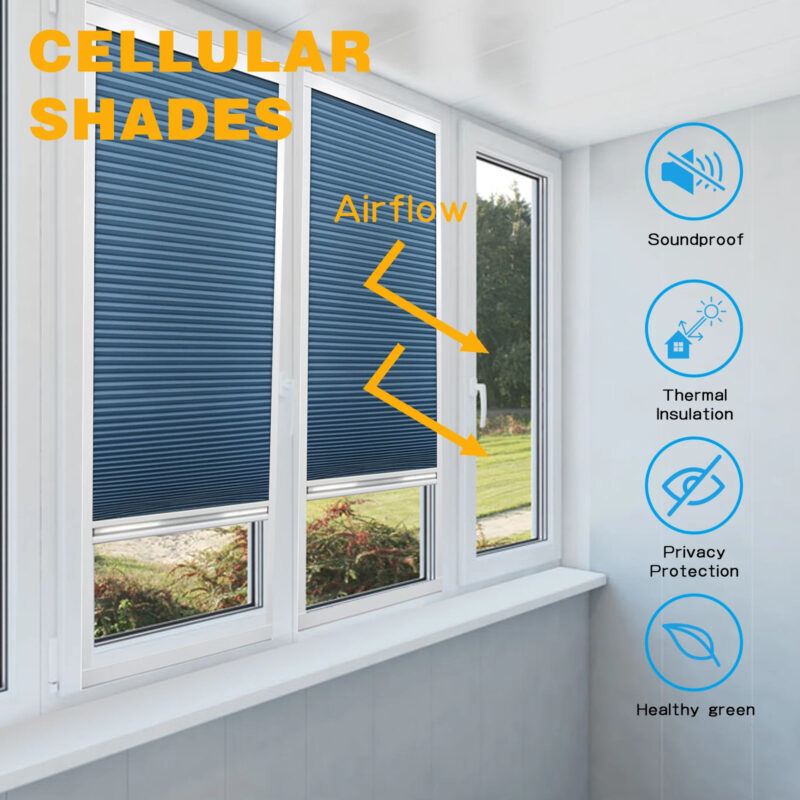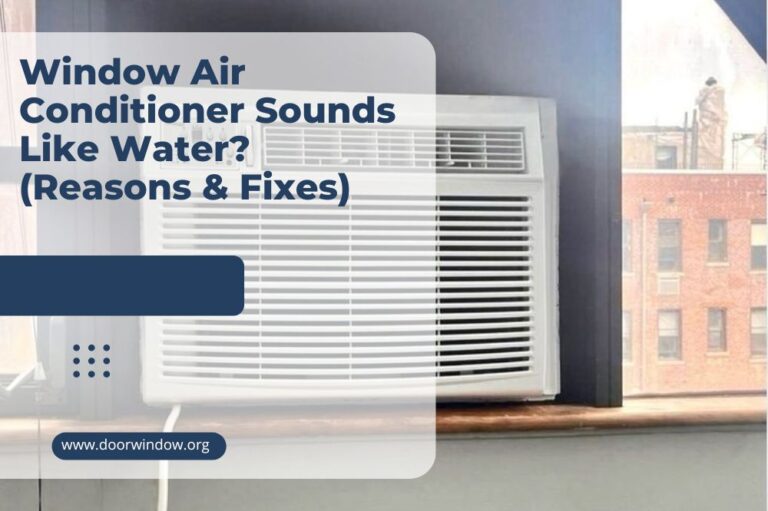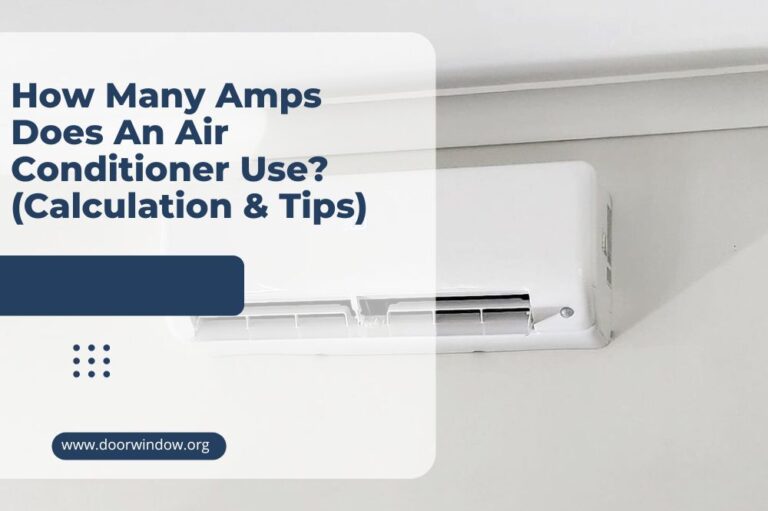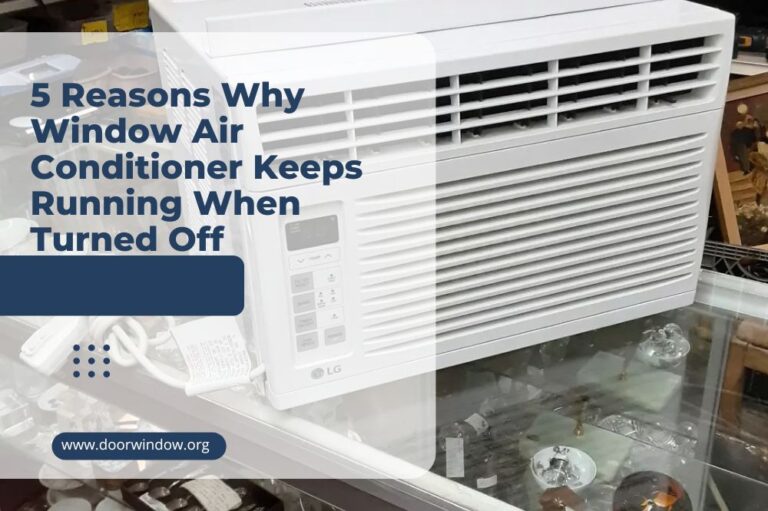Chemical Smells Sweet From Window Air Conditioner? (Reasons & Solutions)

Have you noticed a strange sweet chemical smell coming from your window air conditioner? Are you wondering what is causing it?
An HVAC system comes with many benefits, including regulating indoor temperature, improving indoor air quality, and saving energy.
However, when an air conditioner emits a sweet or pungent chemical smell, something is wrong. There are several reasons for this issue, including a refrigerant leak, residue left behind by chemical cleaning products, or leaky ductwork.
No matter the reason, it’s crucial to address the issue as soon as possible to ensure the efficient operation of the air conditioning system and keep your family safe.
Here, we will explore the various causes of a sweet chemical smell from your window air conditioner and what you can do to fix the problem.
Reasons a Window Air Conditioner Might Emit a Sweet Chemical Smell
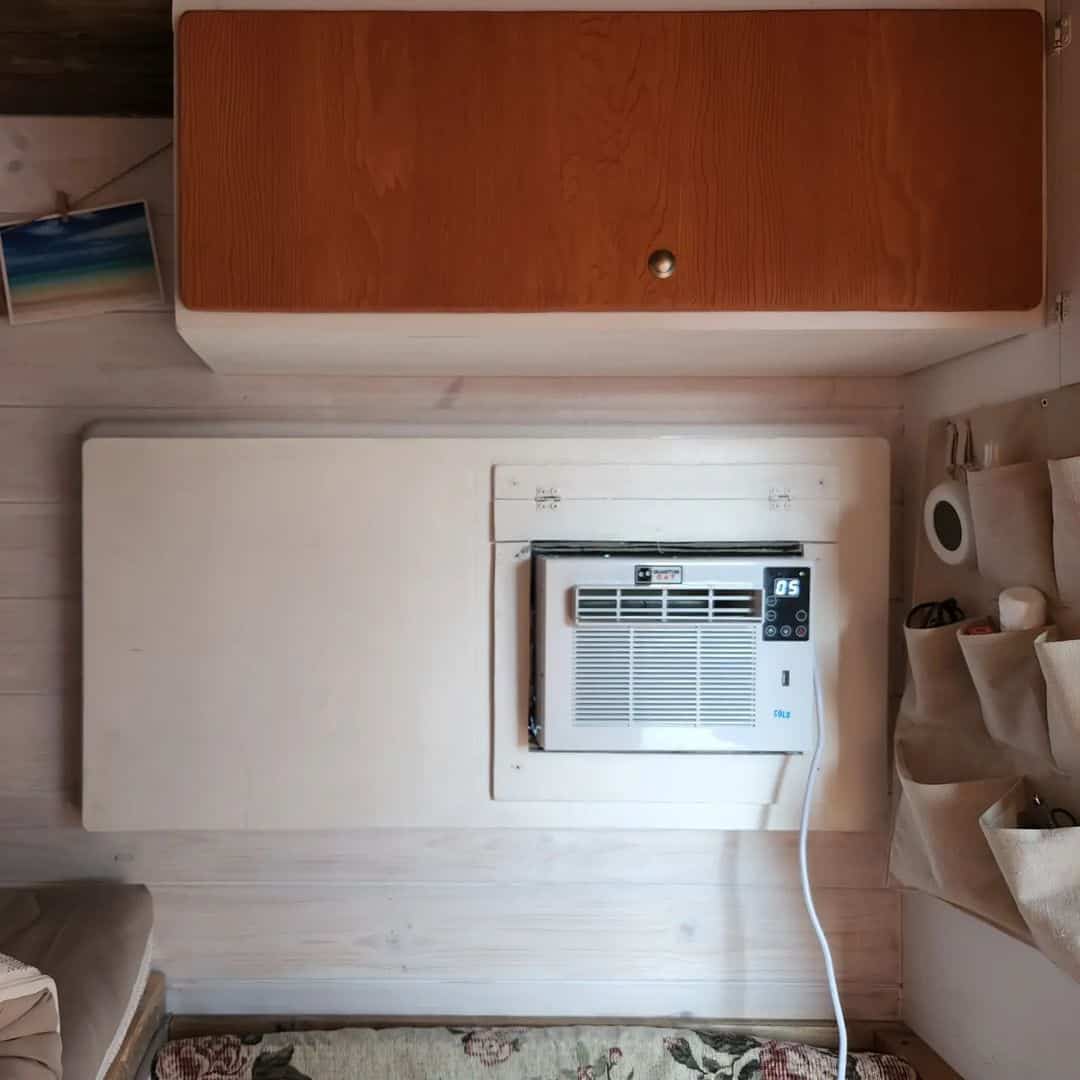
1. Burning Dust
If the chemical scents produced are faint and not strong, they could be caused by burning dust. Dust often accumulates on the internal parts of the AC units, like the evaporator coil and blower fan, and can get ignited by the heat from the AC system.
When this happens, the Air conditioners can produce a burning smell, which is sometimes accompanied by a sweet chemical scent.
Most times, the issue goes away on its own after a short while. But if the burning smell is persistent, clean your window air conditioner. Grab a soft brush or cloth and gently remove dirt and debris from the unit. Use a disinfectant to clean your conditioner’s internal components.
It’s also wise to have your air conditioner serviced by an expert HVAC technician regularly to ensure it’s in perfect working condition and prevent potential problems.
2. Refrigerant Leaks
A strong and persistent sweet chemical scent from a window air conditioner point to leaking refrigerator lines. This is a serious problem and can damage the air conditioner if not addressed immediately.
A refrigerant (or coolant) is the lifeline of the air conditioning system. It works to cool the air in your home. Usually, the refrigerant flows in a closed-loop system of copper coils. Over time, these coils can crack, allowing the refrigerant to escape.
Therefore, the chemical smell filling your house could be the leaking refrigerant, which has a sweet, Freon (or R-22) or chloroform scent. Despite its sweetness, the coolant is meant to stay in the HVAC system refrigerant line because it’s hazardous to humans and the environment.
Besides the sweet smell, other signs of a leaking Freon refrigerant include:
- Ice on the refrigerant lines
- Hissing or bubbling sounds coming from the AC unit
- High electricity bills
- Warm air coming from the AC vents
- Reduced air conditioner efficiency
If you suspect a refrigerant leak in your window air conditioner, contact an HVAC specialist immediately to check the severity of the leak and to fix the problem.
3. Chemical Cleaning Products
It’s also possible that the sweet-smelling chemical scent released by your conditioner relates to the cleaning products you use. This rings true, especially if you use cleaning products with fragrances or scented chemicals.
If you use such products to clean your conditioner, their scents might be emitted through the air conditioner’s vents as it operates, causing the air circulated indoors to have a sweet smell.
However, you should be cautious of the products you use to clean your AC units, as some contain chemicals that can be harmful when inhaled. Opt for mild, non-toxic cleaning products to reduce the risk of exposing yourself and your family to harmful chemicals.
If you’re unable to determine the cause of the sweet smell or unsure of how to fix the problems, it’s wise to contact and professional HVAC technician for help.
Now, let’s look at other common air conditioner odors and what they could mean.
Air Conditioner Smells and Their Causes
1. Chemical Smells
If your central air conditioner smells like chemicals, the culprit is a refrigerant leak. If the coolant leaks, your air conditioner might smell like paint thinner or produce a sweet chemical scent. As said earlier, this is a serious issue that should get addressed by a professional ASAP!
Sometimes, the smell could originate from a dirty air filter. The filter causes a musty and moldy smell. The best method to address this problem is to replace the dirty filter with a new one and the smell will go away.
2. Vinegar Like Odor
If an air conditioner smells like vinegar or produces mildew or a pungent smell, it could be caused by several things. Here are some potential causes:
- A clogged filter
When the air filter becomes clogged with debris and dirt, it can restrict the flow of air through the system. As a result, it limits the conditioner’s effectiveness in cooling air, resulting in a musty or moldy smell.
- Moldy air conditioner
When mold and mildew develop inside the air conditioner system or ductwork, they release volatile organic compounds (VOCs) as they grow and reproduce. These gasses often have a variety of unpleasant odors, including a vinegar-like smell.
- Excessive condensation
Excessive condensation in air conditioners might cause corrosion of metal components, resulting in a vinegar-like smell. The same applies if the condensation accumulates on the drain pan and becomes acidic.
3. Plastic Smell
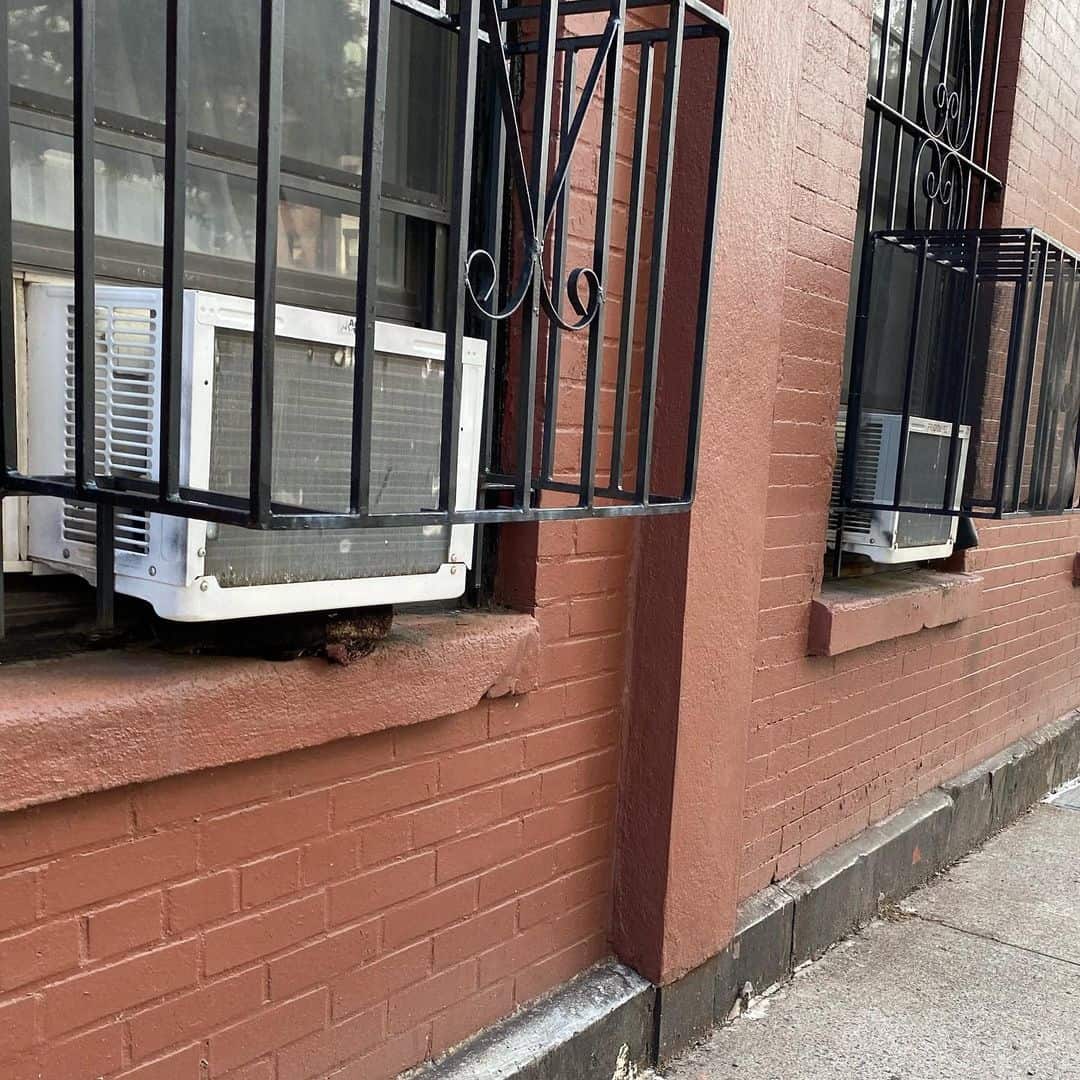
When your air conditioner smells like plastic, it means you are dealing with a broken fan belt. If you notice a strong plastic smell, it could be a sign of a broken capacitor or a fan motor that needs lubrication.
Electrical problems, like burning insulation on wires, could also result in plastic smells. This problem needs immediate attention because it could cause a fire. So, if you smell plastic when you turn on your home conditioner, it’s best to turn it off and unplug it and reach out to a professional to diagnose and repair the issue.
4. Cat Pee Smell
What if the air conditioner smells like cat pee?
The cat pee smell is likely due to mold or bacterial growth inside the AC unit. Molds create mycotoxins that sometimes smell like ammonia or cat urine. If inhaled, these toxic compounds can cause several side effects, including chest pains, sinus congestion, sore throat, etc.
Air conditioner mildew smells occur when the AC unit has not been maintained or it’s not functioning properly. To eliminate the smell, clean the air filter or replace it, check for water damage or leaks, and use disinfected spray. You should also have a technician inspect the unit.
5. Smell of Gas
If you notice a rotten egg odor from your air conditioner, the smell probably comes from hydrogen sulfide gas. Bacteria in the conditioner’s condensate pan or evaporator coil produce this gas when it decomposes organic matter.
The smell could also result from natural gas leaks in your home. Natural gas contains sulfur-like additives to warn you of leaks. This additive usually smells like rotten eggs. If there’s a gas leak in your residence, evacuate the area and call your local gas company or fire department.
Other Causes of Air Conditioners Smell
1. Dirty Evaporator Coils
Evaporator coils absorb heat inside the house. However, they also attract dirt, dust, and debris which can build up on the coil. Over time, the accumulated contaminants provide a suitable environment for mold and mildew growth. This can lead to a musty, moldy, or ammonia-like odor.
Furthermore, the dirt on the evaporator coils reduces the efficiency of the air conditioner and might damage it. To avoid such a situation, keep the coils clean by regularly maintaining and servicing your HVAC system.
2. Clogged Condensate Line
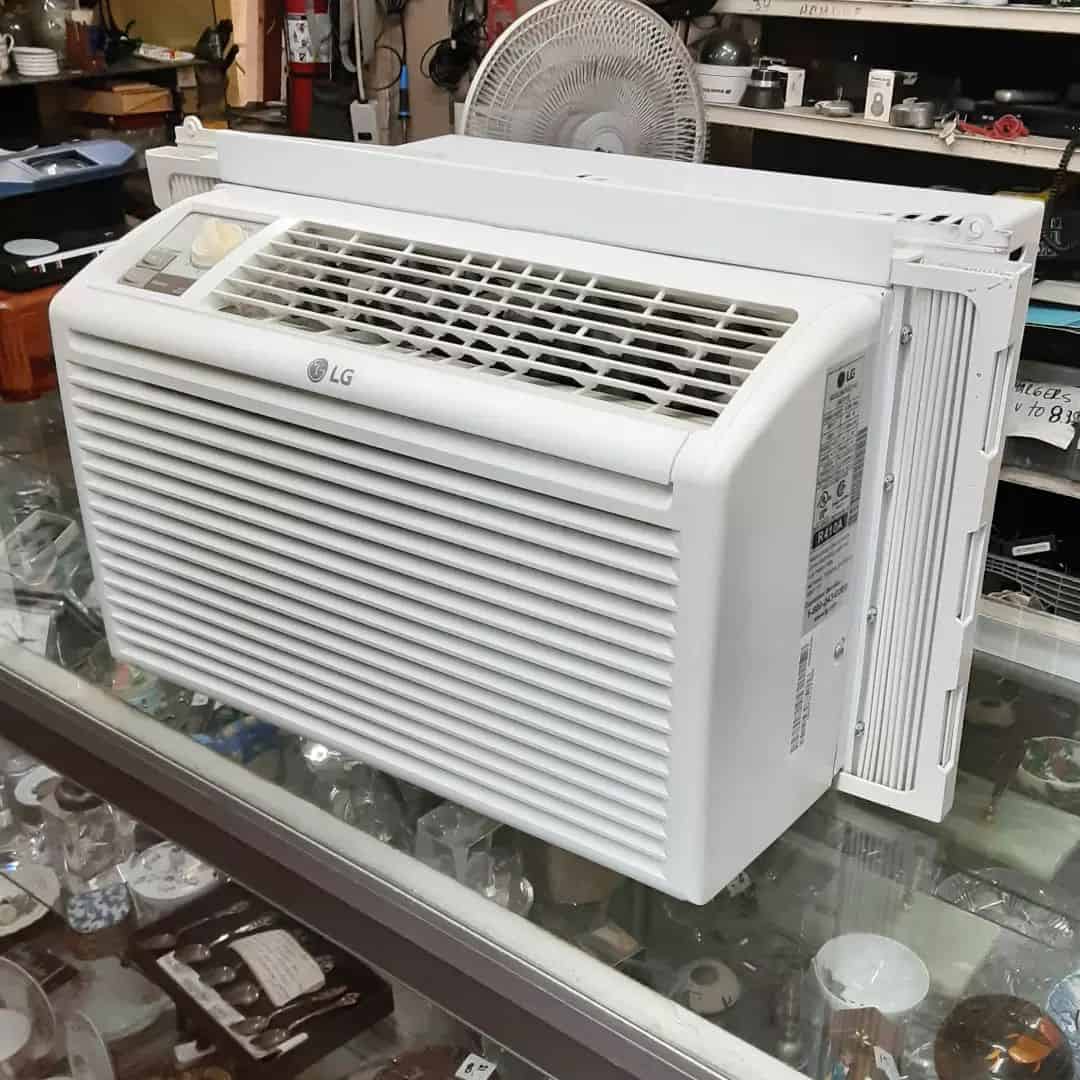
An air conditioner’s condensate drain line removes water produced by the air conditioning process. The water is produced as the refrigerant in the conditioner as it absorbs heat indoors, causing it to condense into liquid form.
When the condensate line gets clogged with dust, dirt, and debris, it can cause the water to back up into the conditioners and sit in the drain pan. As a result, mold and mildew will grow to produce a bad smell.
If you see water pooling near your indoor AC unit, it’s also a sign of a clogged condensate line. The best way to solve this problem is to make sure the condensate line stays clean and unobstructed. You should regularly check the line to ensure it’s working properly.
3. Leaky Ductwork
When an air conditioner’s ductwork is leaking, especially in an unconditioned area, such as the basement or attic, it can also cause dirt, dust, and mold to enter the system. This often results in an unpleasant smell when the unit turns on.
A leaky ductwork also means the conditioning system will work harder than it should. As a result, the AC can overheat, producing a burning smell. Additionally, it can make your air conditioner less effective, increasing your energy bills significantly.
Fix the problem by getting a professional to inspect and repair leaking ductwork to ensure that it’s properly sealed.
Conclusion
As we end our article, it’s important to note that air conditioners can produce different smells. Some scents result from chemical reactions inside the unit and others are caused by mildew, mold, and bacteria growth.
Either way, if you notice a strong, sweet odor coming from your window conditioner, we recommend you turn it off and call an HVAC expert for further inspection. As stated earlier, the smell could be from a leaking refrigerant, which is a potential safety hazard.
If you have more questions or suggestions, please leave us a comment below.


